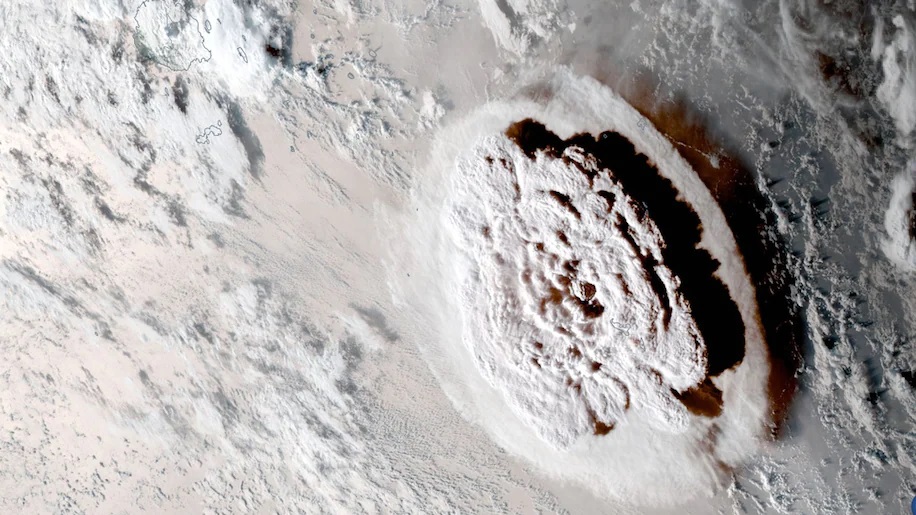If you weren’t too distracted by the winter weather this weekend, you might have noticed that there was a big underwater volcanic eruption yesterday near Tonga in the South Pacific. My feeds have been flooded by satellite loops of the eruption, and one of the coolest things you can see in some of the loops is a shock wave that spreads out at the speed of sound from the eruption when it occurs. We know that shock wave was heard in places as far as Alaska, and we know that it shows up in atmospheric pressure traces around the world. Some places received two, one from the nearest path of the sound wave, and then a second hours later when the other half of the shock wave came around the other side of the earth. Shows that the earth is round, right? It also generated tremendous amounts of lightning due to the electric charges carried by the ash.
I’ve also received some questions about whether or not this could affect our climate this year. We do know that large tropical volcanic eruptions like Mt. Pinatubo in 1992 can cause global cooling for a few years after the eruption. This is due to the injection of small sulfuric acid droplets high into the sky above the level at which jets fly. These small droplets are very shiny and act like the glass beads in the paint on stop signs, reflecting sunlight back to space before it can warm the ground. However, the initial estimates from this eruption are that the amount of sulfur added to the atmosphere is very small compared to what Pinatubo did and so any effects would be very small unless the volcano continues to erupt and puts out a lot more sulfuric acid. The ash clouds, which are highly visible, don’t have much effect because they are temporary and don’t get high enough in the atmosphere to effectively block the sun except locally.
Here are a few places you can read about the eruption and see some videos:
National Geographic: The Tonga eruption explained, from tsunami warnings to sonic booms
Washington Post: How the Tonga volcano generated a shock wave around the world
Scientific American: Are Volcanoes or Humans Harder on the Atmosphere? (for those who think that volcanoes are the cause of greenhouse warming)
